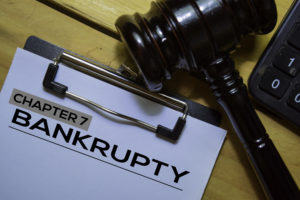Bankruptcy Lawyer

Personal bankruptcy can serve as an important tool for successfully navigating the financial challenges and problems that life can sometimes present. Understanding the benefits, hurdles, and qualifications inherent to the process can help you decide if filing for bankruptcy is the next right step for you. As an experienced bankruptcy lawyer – including those who practice at The Law Offices of Neil Crane – can attest, while filing for bankruptcy isn’t the best debt relief solution for everyone, it has served as a life-altering catalyst (for the better) for millions of Americans.
Benefits
One of the most stressful aspects of being in debt is dealing with the constant barrage of collection calls and notices from creditors. These tactics are deliberately disruptive and pressuring, and they often make a difficult time even harder. Bankruptcy can eliminate this unwanted and upsetting intrusion in your life.
The automatic stay will halt almost all creditor actions for the duration of your bankruptcy case. Once your debt has been discharged, you can start over again with a clean financial slate, reduced stress, and more options.
Hurdles
Not all types of debt can be eliminated through this process. Depending on the types of debt you’re carrying, bankruptcy might not be your most beneficial option for restructuring your finances. You also need to be aware of the potential impacts on your credit score, which can make loans more expensive or difficult to obtain for a period of time after you file for bankruptcy.
Qualifications
The first step to qualifying for bankruptcy is to conduct a means test. This test assesses both your finances and your income and determines if you meet the requirements set out by your state for bankruptcy protection. If you fail the means test on your first try, don’t be discouraged. This means test primarily determines whether you qualify for bankruptcy relief under Chapter 7 of the Bankruptcy Code. Only low-income earners are eligible for Chapter 7 protection. If you don’t qualify for this kind of relief, you should be able to restructure your debt via a Chapter 13 bankruptcy plan.
There are several other requirements to meet after passing the means test:
- Credit Counseling Course: This course must be successfully completed through an accredited credit counseling agency within a 180-day window prior to filing.
- Chapter 13: You have not filed for Chapter 13 bankruptcy within the last 6 years.
- Chapter 7: You have not filed for Chapter 7 bankruptcy within the last 8 years.
- Previous Cases: If you have filed for Chapter 7 or Chapter 13, the case must be dismissed by a judge no less than 181 days prior to a new filing.
It’s important to remember that the qualifications for filing personal bankruptcy can vary from state to state. You can help ensure that you are meeting all qualifications, filing all appropriate paperwork, and using bankruptcy to your best advantage by hiring an experienced, local bankruptcy lawyer.
